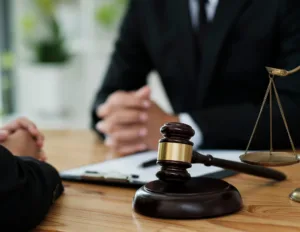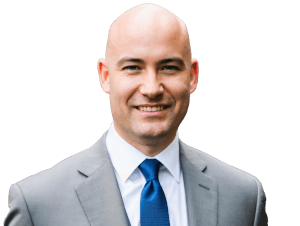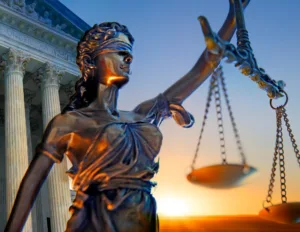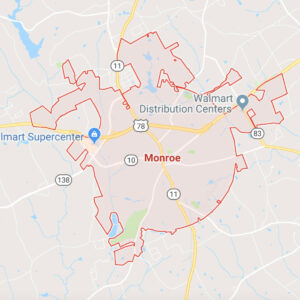Elder abuse is a multifaceted issue that encompasses a range of harmful behaviors against older individuals, often resulting in significant physical, and emotional harm. Understanding the types, prevalence, and settings where abuse can occur is crucial for prevention and intervention.
What is Elder Abuse?
Elder abuse refers to intentional or negligent acts by a caregiver or another person that causes harm or a serious risk of harm to a vulnerable adult. The Schenk Nursing Home Abuse Law’s article on common forms of elder abuse highlights its various types, including:
-
Physical Abuse: Inflicting physical pain or injury, such as hitting, slapping, or causing bruises.
-
Emotional Abuse: Inflicting mental pain, anguish, or distress through verbal or nonverbal acts.
-
Sexual Abuse: Non-consensual sexual contact of any kind.
-
Neglect: The failure to provide necessary care, resulting in harm or distress to the elder.

Prevalence and Facts
Elder abuse is alarmingly prevalent, affecting millions of older adults worldwide. While exact statistics are challenging to pinpoint due to underreporting, studies indicate that a significant percentage of the elderly population experiences some form of abuse. The consequences can be devastating, leading to severe physical injuries, long-term psychological consequences, and even premature death.
Manifestation in Different Settings
Elder abuse can occur in various settings, each presenting unique challenges and risks:
-
In the Home: Often perpetrated by family members or caregivers, abuse in the home can be particularly insidious due to the privacy and control abusers have over their victims.
-
In Care Facilities: Nursing homes and long-term care facilities, while designed to care for the elderly, can sometimes be settings for abuse due to factors like understaffing, inadequate training, or systemic neglect.
Legal Framework for Elder Protection in Georgia
In Georgia, a robust legal framework is in place to protect elders from abuse, ensuring their safety and well-being. Understanding the state's laws, regulations, and the penalties for elder abuse is crucial for anyone looking to safeguard the rights of older adults.
Georgia's Laws and Regulations Against Elder Abuse
Georgia's legal system provides comprehensive protection for older adults through various laws and regulations:
-
Adult Protective Services Act: This act is central to protecting vulnerable adults from abuse, neglect, and exploitation. It outlines the responsibilities of state agencies and the legal measures they can take to protect elders.
-
Criminal Laws: Georgia's criminal code includes specific provisions that make elder abuse a punishable offense. This includes physical abuse, emotional abuse, exploitation, and neglect.
-
Mandatory Reporting Laws: Certain professionals in Georgia are required by law to report suspected elder abuse. This helps ensure that cases are investigated promptly and appropriate action is taken.
Penalties for Elder Abuse
The penalties for elder abuse in Georgia are designed to reflect the seriousness of the offense and to deter potential abusers. According to the Schenk Nursing Home Abuse Law’s article, perpetrators can face severe consequences:
-
Incarceration: Individuals found guilty of elder abuse can face jail or prison time. The length of the sentence depends on the severity of the abuse and whether it resulted in serious injury or death.
-
Fines: In addition to or instead of incarceration, offenders may be required to pay substantial fines.
-
Restitution: Courts may order perpetrators to pay restitution to the victim, covering costs associated with the abuse, such as medical bills and therapy.

The Role of Attorneys in Protecting Elders
Attorneys play a pivotal role in protecting elders from abuse, offering a blend of advocacy, legal expertise, and compassionate guidance. They are instrumental in identifying signs of abuse, taking appropriate legal action, and ensuring the rights and well-being of older adults are upheld.
Identifying Signs of Abuse
Attorneys trained in elder law are skilled at recognizing the often-subtle signs of elder abuse. They understand the physical, emotional, and mental indicators that may suggest mistreatment. Through consultations and evaluations, attorneys can discern patterns or instances of abuse that family members or caregivers might overlook.
Building a Case
Once abuse is suspected or identified, attorneys begin the meticulous process of building a case:
-
Gathering Evidence: This includes collecting medical records, and witness statements. Attorneys may work with medical professionals to understand the extent of physical injuries.
-
Interviewing Witnesses: Attorneys will speak with family members, caregivers, and others who might provide insight into the elder's situation and the alleged abuse.
-
Documenting Injuries: Photographic evidence of physical injuries or living conditions can be powerful in demonstrating the extent of abuse or neglect.
Advocating for the Elder's Rights
Attorneys are staunch advocates for their clients' rights:
-
Legal Representation: They provide representation in legal proceedings, ensuring the elder's voice is heard and their interests are protected.
-
Negotiating Settlements: In some cases, attorneys may negotiate settlements with the accused party or their representatives, seeking compensation for the elder's injuries and suffering.
-
Trial Advocacy: If a case goes to trial, attorneys will present evidence, cross-examine witnesses, and argue on behalf of the elder to secure a favorable outcome.
Providing Guidance and Support
Beyond legal proceedings, attorneys often help elders and their families understand their options and make informed decisions. They can guide them through the complexities of the legal system and connect them with additional resources for support, such as counseling services or support groups.
Reporting Elder Abuse in Georgia
Reporting elder abuse is a critical step in protecting vulnerable seniors and ensuring they receive the help and justice they deserve. In Georgia, specific procedures and resources are in place to facilitate reporting and provide support. Here's a step-by-step guide on how to report elder abuse, with a focus on resources available in the state.
Step 1: Recognize the Signs
Before reporting, it's essential to recognize the signs of elder abuse, which can include physical injuries, emotional changes, or neglect of basic needs. Familiarize yourself with these indicators to ensure you're making an informed report.
Step 2: Gather Information
Collect as much information as possible about the victim, the nature of the abuse, and the alleged abuser. This can include the elder's personal details, descriptions of incidents, and any evidence of abuse or neglect.
Step 3: Contact Adult Protective Services (APS)
In Georgia, APS is responsible for investigating reports of elder abuse. You can file a report by contacting your local APS office. The Schenk Nursing Home Abuse Law’s guide provides detailed information on how to report nursing home abuse in Georgia, which is a valuable resource for understanding the process.
Step 4: Use the Elder Abuse Hotline
For immediate assistance, Georgia has an elder abuse hotline. According to the Schenk Nursing Home Abuse Law’s resource, individuals can call 1-866-55AGING (1-866-552-4464) and then press “3” to report abuse. This hotline provides a direct line to report abuse and seek help.
Step 5: Contact Law Enforcement
If the situation is an emergency or if there's immediate danger, contact local law enforcement right away. They can provide immediate assistance and protection.
Step 6: Document Everything
Keep a record of all communications, reports, and evidence related to the abuse. This documentation can be crucial for any subsequent investigations or legal actions.
Step 7: Seek Legal Counsel
Consider consulting an attorney specializing in elder law for guidance on further legal actions and to understand the rights of the elder. They can provide advice on how to proceed with potential legal cases.

Legal Actions and Remedies
When elder abuse occurs, legal actions and remedies are essential for holding perpetrators accountable and providing justice and compensation to victims. Attorneys specializing in elder law can take various legal actions on behalf of elder abuse victims in Georgia.
Types of Legal Actions
-
Civil Lawsuits for Neglect or Abuse: Victims of elder abuse or their families can file civil lawsuits against individuals, caregivers, or institutions responsible for the abuse. These lawsuits can seek compensation for damages resulting from the abuse. The Schenk Nursing Home Abuse Law’s article provides insights into the process of suing for neglect or abuse in Georgia, highlighting how victims can seek justice and compensation through the legal system.
-
Criminal Charges: In cases where the abuse constitutes a criminal act, such as physical assault, attorneys can work with law enforcement and prosecutors to press criminal charges against the abusers.
-
Guardianship Proceedings: In some situations, legal action may involve setting up a guardianship to protect the elder from further abuse and ensure they receive proper care and management of their affairs.
Discussion on Compensation, Restitution, and Other Legal Remedies
-
Compensation for Medical Bills and Other Expenses: Victims can seek compensation for medical treatment, psychological counseling, and other expenses incurred as a result of the abuse.
-
Restitution: Courts may order abusers to pay restitution to the victims, reimbursing them for financial losses suffered due to the abuse.
-
Pain and Suffering Damages: Victims may be entitled to compensation for physical pain and emotional suffering caused by the abuse.
-
Punitive Damages: In cases of particularly egregious abuse, courts may award punitive damages to punish the abuser and deter future misconduct.


Choosing the Right Attorney
Selecting the right attorney is a critical decision for families and victims of elder abuse. An attorney with specific experience in elder abuse cases and a deep understanding of Georgia's elder law can provide effective representation and guidance through the complexities of these cases.
Finding an Attorney with Elder Abuse Expertise
-
Specialization in Elder Law: Look for attorneys who specialize in elder law, as they will have a comprehensive understanding of the legal issues unique to elder abuse cases.
-
Experience in Elder Abuse Cases: An attorney with experience in handling elder abuse cases will be familiar with the best strategies for investigation, evidence gathering, and presenting a compelling case.
-
Reputation and Reviews: Research potential attorneys' reputations. Look for reviews or testimonials from previous clients to gauge their effectiveness and client satisfaction.
Importance of Expertise in Georgia's Elder Law
-
Understanding State-Specific Laws: Georgia's elder law has specific statutes and regulations regarding elder abuse. An attorney well-versed in these laws can navigate the legal system more effectively.
-
Navigating Local Legal Systems: Attorneys familiar with the local legal landscape in Georgia, including courts and law enforcement, can maneuver through the system more efficiently, which can be advantageous in elder abuse cases.
-
Advocacy and Representation: An experienced attorney can advocate powerfully on behalf of the elder, ensuring their rights are protected and their voice is heard in legal proceedings.
Preventative Measures and Education
Attorneys specializing in elder law play a crucial role not only in addressing instances of elder abuse but also in preventing it through education and strategic planning. By informing families and facilities about the risks and signs of elder abuse, as well as ways to prevent it, attorneys can help create safer environments for elders.
Educating Families and Facilities
-
Workshops and Seminars: Attorneys can conduct workshops and seminars for families and staff at elder care facilities, covering topics such as the signs of elder abuse, legal obligations, and strategies for prevention.
-
Resource Distribution: Providing literature and online resources that detail preventive measures and legal information can be an effective way for attorneys to spread awareness. Organizations like the National Center on Elder Abuse offer valuable materials that can be shared.
Strategies to Empower and Protect Elders
-
Legal Planning: Attorneys can help families set up legal instruments like powers of attorney and guardianships, which can provide safeguards against financial exploitation and ensure proper care decisions are made.
-
Regular Check-Ins: Encouraging families to maintain regular communication and visitation schedules can help ensure the well-being of the elder and provide opportunities to spot any signs of abuse early.
-
Advocacy Training: Teaching elders and their families how to advocate for their rights and needs effectively can empower them to speak up against abuse and seek help when needed.
The Role of Attorneys in Prevention
Attorneys with expertise in elder law can provide guidance on the best practices for preventing elder abuse, tailored to the specific needs and circumstances of the elder and their family. They can also advise on how to create a safe and supportive environment that minimizes the risk of abuse.
Complexities in Cases Involving Family Members or Caregivers
-
Emotional Ties: When the abuser is a family member, emotional bonds can complicate the victim's willingness to report abuse and pursue legal action. Attorneys must handle these situations with empathy and understanding while ensuring the victim's safety and rights are prioritized.
-
Dependency Issues: Elders often depend on their abusers for care and support, making it challenging to confront or report the abuse. Legal professionals need to consider alternative care arrangements and support systems to protect the elder's well-being.
Legal Considerations
-
Confidentiality and Consent: Attorneys must navigate issues of confidentiality and consent, especially when dealing with clients who may have diminished capacity. Ensuring that the elder's wishes are respected and that they understand the legal proceedings is paramount.
-
Guardianship and Power of Attorney: In some cases, establishing guardianship or using a power of attorney may be necessary to protect the elder's interests. However, these legal tools must be used judiciously to avoid further exploitation or abuse.
Ethical Considerations
-
Best Interest of the Elder: Attorneys must always act in the best interest of the elder, which sometimes involves difficult decisions, such as removing the elder from their home or taking legal action against a family member.
-
Balancing Autonomy and Protection: Respecting the elder's autonomy while ensuring their protection can be a delicate balance. Attorneys should strive to empower their clients to make informed decisions while also taking necessary steps to safeguard their well-being.
FAQs on Elder Abuse and Legal Options
Elder abuse is a complex issue that raises many questions for families and victims seeking help and understanding. Here are some commonly asked questions about elder abuse, legal options, and how attorneys can assist, along with clear, actionable answers.
What is Considered Elder Abuse?
Elder abuse includes physical, emotional, sexual, and mentall abuse, as well as neglect. It can occur in various settings, including the elder's home, care facilities, or in the community.
How Do I Know if My Loved One is Being Abused?
Signs of elder abuse can include unexplained injuries, sudden changes in behavior or finances, poor hygiene, and withdrawal from social activities. If you notice any of these signs, it's important to investigate further and consider reaching out for help.
Who Can I Report Elder Abuse To in Georgia?
In Georgia, you can report elder abuse to the Adult Protective Services (APS) or the elder abuse hotline. In emergencies, you should also contact local law enforcement.
Can I Sue for Elder Abuse in Georgia?
Yes, you can sue for elder abuse in Georgia. If your loved one has suffered abuse or neglect, you may have legal grounds to file a lawsuit seeking compensation for damages and to hold the abuser accountable.
How Can an Attorney Help in Elder Abuse Cases?
Attorneys can help by providing legal advice, representing the elder in court, gathering evidence, and negotiating settlements. They can also guide you through the complexities of the legal system and advocate for the elder's rights and best interests.
What Should I Look for in an Attorney for an Elder Abuse Case?
Look for an attorney with experience in elder law and a track record of handling elder abuse cases. They should be compassionate, understanding, and knowledgeable about the specific legal issues involved in elder abuse.
Are There Any Resources Available for Elder Abuse Victims?
Yes, there are resources available, including legal assistance, counseling services, and support groups. Adult Protective Services and local elder advocacy organizations can provide help and guidance.
XII. Conclusion
Attorneys play an indispensable role in the fight against elder abuse, serving as both protectors and advocates for some of the most vulnerable members of our society. They are not just legal representatives but also crucial allies in the pursuit of justice, safety, and dignity for elders facing abuse.
-
Advocates for Justice: Attorneys bring abusers to account, navigating the legal system to ensure that those who perpetrate elder abuse face the consequences of their actions. Through civil lawsuits and criminal prosecutions, they work to secure justice for victims and their families.
-
Protectors of the Vulnerable: With their expertise in elder law, attorneys help safeguard the rights and well-being of older adults. They provide a shield against exploitation and abuse, offering legal strategies and solutions to protect and empower elders and their families.
-
Guides Through Complexity: The legal landscape of elder abuse is complex and daunting. Attorneys guide families through this terrain, demystifying legal processes, and providing the clarity and direction needed to make informed decisions.
-
Champions of Change: Beyond individual cases, attorneys also advocate for broader changes in laws, policies, and societal attitudes, contributing to a future where elder abuse is significantly reduced, and older adults can live with the respect and care they deserve.





